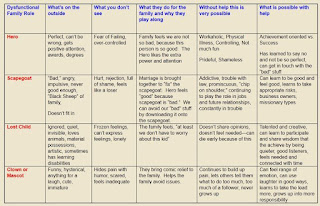CHRIST IN WINTER: Reflections on Faith & Life for the Years of Winter
Since I’m posting this on
Sunday, we’ll start with CREATIVE BIBLE STUDY
“Everything works together
for good to those who love God… and have a very vivid imaginations.” {The
Apostle, Paul, as amplified by the then teen-aged Mary Beth McFarland}
CREATIVE OBITS
I have occasion to read
obits these days. One recently recounted, “She never had a mean thing to say
about anyone, but there was some eye-rolling.” That’s delightful.
CREATIVE CARDIOLOGISTS
My friend, Stan McMorris,
is a huge U of IL fan. He was facing a quick quintuple bypass, probably because
of many years as the Staff-Parish Relations Chair at his church, and was
dismayed to find that the cardiologist was proudly displaying a U of MI pin on
his white coat. In his avuncular insurance salesman way, Stan protested,
questioning if he could entrust his heart to such a person. The doc said, “If
you wish, I’m sure we can find someone less qualified to do the operation.”
[Wearing a U of MI pin at a hospital in Champaign, IL, he probably had used
that line many times already.]
CREATIVE TENANTS
The University of Iowa
newspaper recently ran an article about a guy being arrested for shooting his
landlord. Reminds me of the old Irish priest who complained, “It’s liquor that
makes you shoot at the landlords, and it’s liquor that makes you miss.”
CREATIVE EXCUSES
Bill Linneman died Jan. 7. He was 95. He and Besty were great supporters of The Wesley Foundation at IL State U, where Bill was a professor of English, when I was campus minister there. His specialty was written humor, especially political humor. He practiced that humor himself in columns for the local newspaper. A few years ago he wrote of why he had decided to stop driving. “I live in a retirement residence that has a little bus that takes us wherever we want to go. It’s much less stressful and more enjoyable to let someone else do the driving, just enjoy the sights. Also, I failed the driving exam.”
CREATIVE EYE TESTSReminds me of going to the
BMV to get my license renewed this week. Channeling Bill Linneman, I got two of
the first 8 letters on the top line wrong and couldn’t see the last 4 at all.
“Good enough” the young woman said. I love living in Indiana.
After
many years of trying to be perfect, “good enough” is a great relief.
[Note
to my daughters and the police: Don’t worry. Because of covid, I didn’t want to
get my face right down into the eye test thingy, so…]
CREATIVE AGING
I was dumbfounded the last
time I was at the doctor’s when nurse Olivia weighed me and then asked if I
wanted to know my weight. Turns out that she couldn’t tell me without my
permission, since there are people who don’t want to know their weight.
Next time, I’m going to ask her if she is allowed to tell
me my age as well as my weight. I can believe what the scales say about my
weight, but not what the calendar says about my age. Maybe if I hear it from
someone else…
The first half of her teaching career, Helen was in universities. The second half was in high school. She was uneasy about making that transition. But a couple of years in, a student told her one day, “You’re our favorite teacher.” Helen was astounded. She knew she wasn’t a favorite because she was easy on the kids. “Why?” she asked. “Well, because you like us!”
John Robert McFarland
For some reason the
comments section at the bottom of these columns seems not to work, or is
unfindable, or something. So, if you want to comment, try johnrobertmcfarland@gmail.com.










































